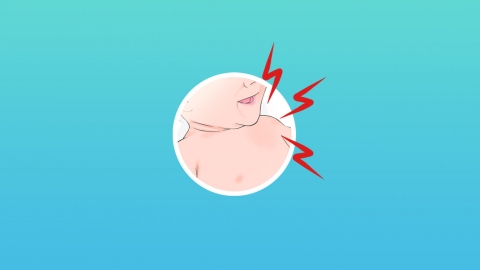What symptoms may appear when blood heat first begins?
The initial symptoms of blood heat generally manifest as skin abnormalities, dry mouth and sore throat, irritability and insomnia, abnormal urination and bowel movements, and eye discomfort. A detailed analysis is as follows:

1. Skin abnormalities: The skin may easily develop red patches, papules, or be accompanied by mild itching and a burning sensation. Some individuals may experience dry, flaky skin. Red patches show little fading when pressed, and wound healing is relatively slow. Minor bumps or bruises may lead to petechiae or ecchymosis.
2. Dry mouth and sore throat: Oral mucosa becomes dry, with frequent thirst that persists despite increased fluid intake. The throat may appear slightly red and swollen, with a painful sensation that worsens after speaking extensively or consuming spicy foods. Recurrent oral ulcers may also occur.
3. Irritability and insomnia: Individuals may feel easily agitated or angry, with inner restlessness and an inability to relax. They may have difficulty falling asleep, experience light sleep with frequent dreams and awakenings, and wake up feeling unrefreshed. Mental fatigue and poor concentration during the day are common.
4. Abnormal urination and bowel movements: Urine color darkens, appearing deep yellow, and may be accompanied by a slight burning sensation during urination. Urine volume may decrease compared to normal. Bowel movements may become dry and hard, making defecation difficult, or bowel movement frequency may decrease. Some individuals may also experience anal burning or minor rectal bleeding.
5. Eye discomfort: Eyes may feel dry and appear red, with increased blood vessels in the whites of the eyes, along with mild foreign body sensation or burning. Eye fatigue worsens with prolonged use, possibly leading to blurred vision or eye pressure. Increased eye discharge may be noticeable upon waking.
When early symptoms appear, it's important to promptly adjust lifestyle habits. Diet should be light, emphasizing cooling-type vegetables and fruits, while avoiding spicy and warming foods. If symptoms persist or worsen, it is advisable to consult a Traditional Chinese Medicine practitioner for pattern differentiation and proper regulation to prevent further progression of blood heat and potential complications.









